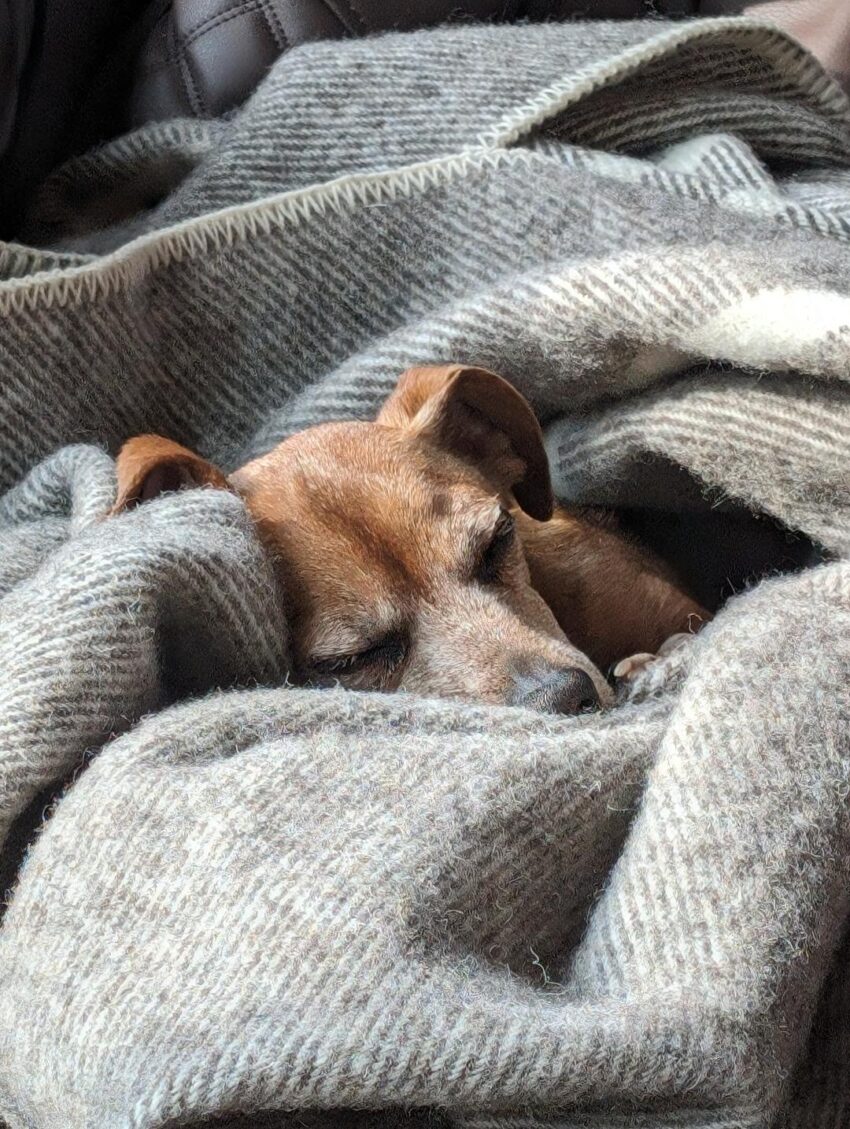Stepping out the front door and off the steps I balance two heavy metal buckets of water. I feel a deep pull from inside my shoulders, familiar, warm.
I take a moment as I walk, to push my breath out from inside the warmth of my body into the frigid air. I watch as it quickly creates a frosted funnel in front of me, a balloon in a cartoon, waiting for me to fill it with words.
I’m dressed for cold morning chores, my overalls wrapped around my calves and pushed into my boots. A red neck-warmer yanked over my head, wool hat stretched down hard over my ears. Barn coat last to be pulled on and buttoned all the way up: cuffs tattered and some of the checked fabric missing at the collar. Work gloves for carrying the metal buckets, cold from living stacked outside next to the door.
Unlike in the summer humidity when I move slowly and begrudgingly trudge rather than walk, in the cold I move efficiently and regularly like gears. I quickly fill a plastic scoop with cracked corn and step into the chicken’s run. They high-step over hen-size snowbanks, walking a careful walk that is comical in its deliberateness: greeting me with varying pitches.
If the day promises to remain frigid, we leave on heaters in both coops. When I walk into the warmth, the birds look up at me with surprise as I interrupt their hen-party. They scatter quickly, run out the door and down the ramp only to encounter snow at which they turn and race back in, taking their chances with me.
It is at this point that I ditch gloves preferring, as with gardening, to feel all there is to feel with my bare hands. This habit ensures that I begin the day with dirt under my nails. Working with feed stored in cold metal cans makes my hands begin to ache almost immediately. This ache is my thermometer of cold.
Moving quickly from coop to barn I take a moment and stop. I look out over sleeping pasture, our sheep shed far below, slightly tilted right on a snowdrift. It looks lonely without its sheep to shade from warm afternoons. The way an empty school looks. The edges of the pasture now fenced by only pines, their branches low under the weight of white. I see the door of the silent greenhouse moving slightly with wind from the North. I’ve observed this pasture a million times. In the summer heat the land below me buzzes with life. Six months of the year I’m constantly pulled by its continuous needs, a mother feeding her child. Winter brings stillness. We rest.
Each day this week the snow comes; sometimes like sugar being dusted on a cake: other times I watch it collect and hurl off the roof, spinning in small funnels over a boiling cauldron. Getting out of the truck I collect bags of groceries and hurry into the house, my boots squeaking across the dry snow. Fumbling with keys, I open the door and walk through the wall of heat magically created by the wood stove. This contrast makes me love cold. I can only know warmth because of it.
I feel an enormous sense of luxury standing in the window watching winter weather. Not compelled to join the outside, by need or want as in summer, I revel in the fire, standing in heavy socks on the stone hearth of the wood stove, the heat almost a life force.
Not sure why I need to understand it, still I ruminate on why; while some thrive in heat, I wilt, while some shrivel in cold, I blossom.
There is a gift in the balance; the quiet white offsetting the vibrate green.
Living in Vermont I am graciously offered four seasons of choices and like having four children, it is their differences rather than similarities that delight and intrigue me.
“There is no wealth but life.”
John Ruskin: from Unto This Last

I appreciate this. Being raised in West Texas where there are no ‘seasons’ as we know them, I too have a subliminal affection for each expression of the year, even and maybe, especially winter.
As you can tell- winter is my happy place…I ponder on it a lot but choose to just accept it!
Thank you for your thoughtful response. I appreciate it.
I appreciate this. Being raised in West Texas where there are no ‘seasons’ as we know them, I too have a subliminal affection for each expression of the year, even and maybe, especially winter.